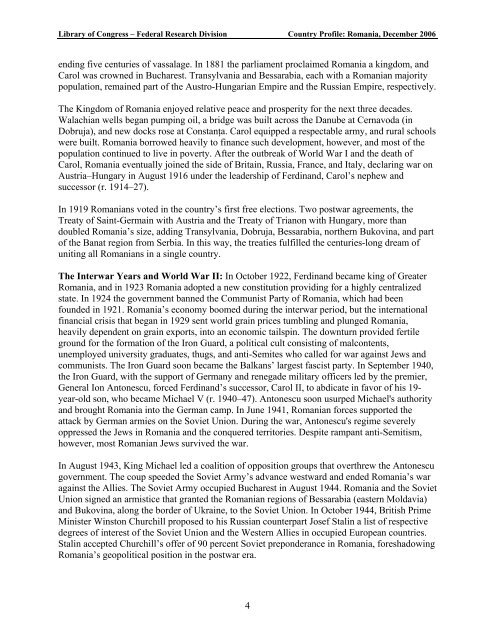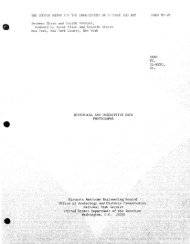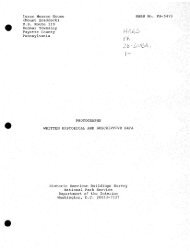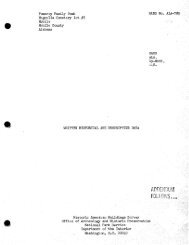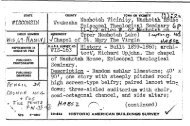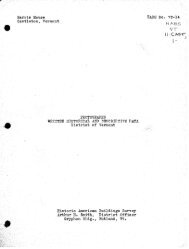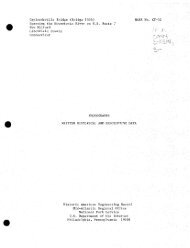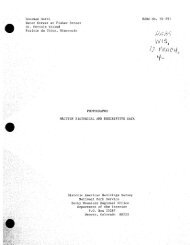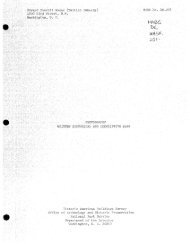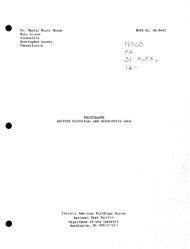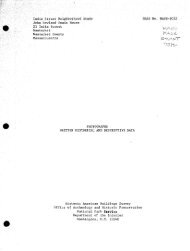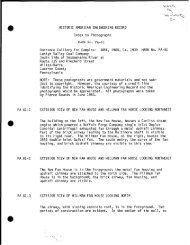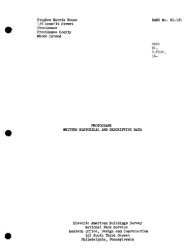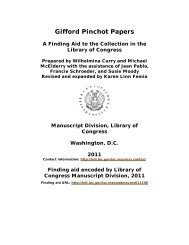Country Profile: Romania - Library of Congress
Country Profile: Romania - Library of Congress
Country Profile: Romania - Library of Congress
You also want an ePaper? Increase the reach of your titles
YUMPU automatically turns print PDFs into web optimized ePapers that Google loves.
<strong>Library</strong> <strong>of</strong> <strong>Congress</strong> – Federal Research Division <strong>Country</strong> <strong>Pr<strong>of</strong>ile</strong>: <strong>Romania</strong>, December 2006<br />
ending five centuries <strong>of</strong> vassalage. In 1881 the parliament proclaimed <strong>Romania</strong> a kingdom, and<br />
Carol was crowned in Bucharest. Transylvania and Bessarabia, each with a <strong>Romania</strong>n majority<br />
population, remained part <strong>of</strong> the Austro-Hungarian Empire and the Russian Empire, respectively.<br />
The Kingdom <strong>of</strong> <strong>Romania</strong> enjoyed relative peace and prosperity for the next three decades.<br />
Walachian wells began pumping oil, a bridge was built across the Danube at Cernavoda (in<br />
Dobruja), and new docks rose at Constanţa. Carol equipped a respectable army, and rural schools<br />
were built. <strong>Romania</strong> borrowed heavily to finance such development, however, and most <strong>of</strong> the<br />
population continued to live in poverty. After the outbreak <strong>of</strong> World War I and the death <strong>of</strong><br />
Carol, <strong>Romania</strong> eventually joined the side <strong>of</strong> Britain, Russia, France, and Italy, declaring war on<br />
Austria–Hungary in August 1916 under the leadership <strong>of</strong> Ferdinand, Carol’s nephew and<br />
successor (r. 1914–27).<br />
In 1919 <strong>Romania</strong>ns voted in the country’s first free elections. Two postwar agreements, the<br />
Treaty <strong>of</strong> Saint-Germain with Austria and the Treaty <strong>of</strong> Trianon with Hungary, more than<br />
doubled <strong>Romania</strong>’s size, adding Transylvania, Dobruja, Bessarabia, northern Bukovina, and part<br />
<strong>of</strong> the Banat region from Serbia. In this way, the treaties fulfilled the centuries-long dream <strong>of</strong><br />
uniting all <strong>Romania</strong>ns in a single country.<br />
The Interwar Years and World War II: In October 1922, Ferdinand became king <strong>of</strong> Greater<br />
<strong>Romania</strong>, and in 1923 <strong>Romania</strong> adopted a new constitution providing for a highly centralized<br />
state. In 1924 the government banned the Communist Party <strong>of</strong> <strong>Romania</strong>, which had been<br />
founded in 1921. <strong>Romania</strong>’s economy boomed during the interwar period, but the international<br />
financial crisis that began in 1929 sent world grain prices tumbling and plunged <strong>Romania</strong>,<br />
heavily dependent on grain exports, into an economic tailspin. The downturn provided fertile<br />
ground for the formation <strong>of</strong> the Iron Guard, a political cult consisting <strong>of</strong> malcontents,<br />
unemployed university graduates, thugs, and anti-Semites who called for war against Jews and<br />
communists. The Iron Guard soon became the Balkans’ largest fascist party. In September 1940,<br />
the Iron Guard, with the support <strong>of</strong> Germany and renegade military <strong>of</strong>ficers led by the premier,<br />
General Ion Antonescu, forced Ferdinand’s successor, Carol II, to abdicate in favor <strong>of</strong> his 19year-old<br />
son, who became Michael V (r. 1940–47). Antonescu soon usurped Michael's authority<br />
and brought <strong>Romania</strong> into the German camp. In June 1941, <strong>Romania</strong>n forces supported the<br />
attack by German armies on the Soviet Union. During the war, Antonescu's regime severely<br />
oppressed the Jews in <strong>Romania</strong> and the conquered territories. Despite rampant anti-Semitism,<br />
however, most <strong>Romania</strong>n Jews survived the war.<br />
In August 1943, King Michael led a coalition <strong>of</strong> opposition groups that overthrew the Antonescu<br />
government. The coup speeded the Soviet Army’s advance westward and ended <strong>Romania</strong>’s war<br />
against the Allies. The Soviet Army occupied Bucharest in August 1944. <strong>Romania</strong> and the Soviet<br />
Union signed an armistice that granted the <strong>Romania</strong>n regions <strong>of</strong> Bessarabia (eastern Moldavia)<br />
and Bukovina, along the border <strong>of</strong> Ukraine, to the Soviet Union. In October 1944, British Prime<br />
Minister Winston Churchill proposed to his Russian counterpart Josef Stalin a list <strong>of</strong> respective<br />
degrees <strong>of</strong> interest <strong>of</strong> the Soviet Union and the Western Allies in occupied European countries.<br />
Stalin accepted Churchill’s <strong>of</strong>fer <strong>of</strong> 90 percent Soviet preponderance in <strong>Romania</strong>, foreshadowing<br />
<strong>Romania</strong>’s geopolitical position in the postwar era.<br />
4


